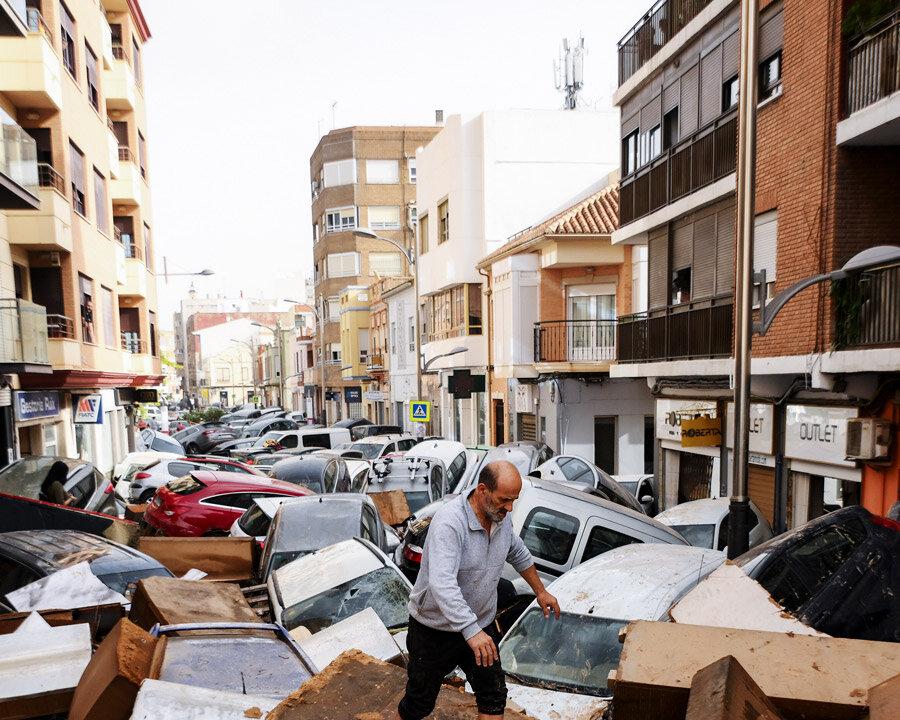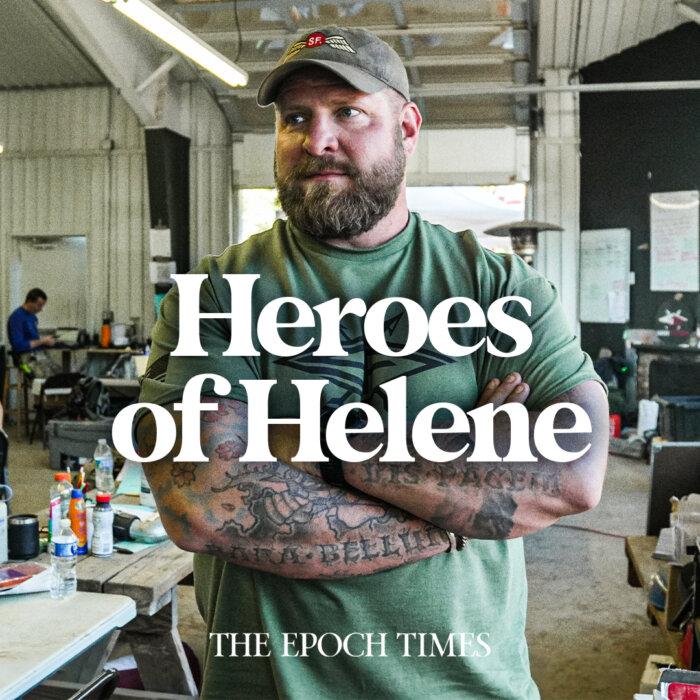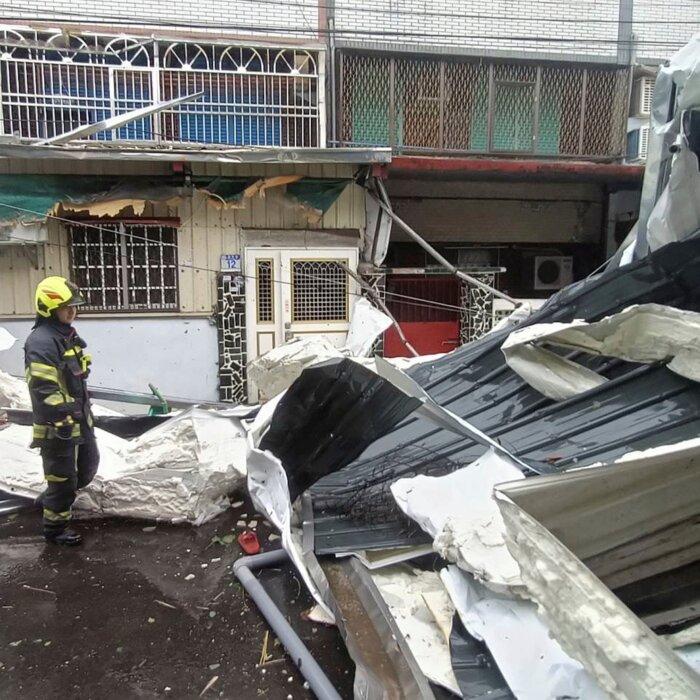The death toll after a deluge in southern Spain has reached 205, and is expected to rise further as rescue crews search more bodies in damaged homes and piles of stranded cars.
Flash floods on Oct. 29 have claimed the lives of 202 people in the Valencia region, another two in neighboring Castilla-La Mancha and one in Andalusia.
Spain’s national weather service AEMET called the torrential rain extraordinary, and said the town of Chiva in Valencia region received more rain in eight hours than it had in the preceding 20 months.
On Wednesday night, Spain’s Transport Minister Óscar Puente said it was not clear how many people were missing but said bodies were found inside some vehicles.
The death toll has climbed steadily from 51 to 63, then 95 and now 158 and it is almost certain to rise over the weekend.
The disaster has surpassed the death toll for Spain’s previous worst flood, in August 1996, when 87 people were killed when a campsite was swept away by the overflowing Gallego river in Biescas, in the foothills of Pyrenees.
Spanish Prime Minister Pedro Sánchez, who has declared three days of national mourning, said on Thursday, “Our priority is to find the victims and the missing so we can help end the suffering of their families.”
Sánchez said residents should remain vigilant.
“This storm front is still with us. Stay home and heed the official recommendation and you will help save lives,” he said.
As more heavy rain fell on Oct. 31, AEMET issued alerts for several counties in Castellón, in the Valencia region, for Tarragona in Catalonia, and for Cadiz in Andalucia.
Tuesday’s floods were caused largely by overflowing rivers.
The Magro, Turia, and Júcar rivers burst their banks, flooding a number of towns and villages.
Many people driving home from work on Tuesday evening were hit by a wall of water, and some drowned in their cars.
The Valencia regional government has been criticized for not sending out an emergency alert earlier on Oct. 29, with many only receiving it after they had started their evening commute.
Luís Sánchez, a welder, saved several people trapped in their cars on the flooded V-31 highway south of the city of Valencia.
“I saw bodies floating past. I called out, but nothing. The firefighters took the elderly first, when they could get in. I am from nearby so I tried to help and rescue people. People were crying all over, they were trapped,” Sánchez said.
In several towns and villages cars are piled on top of each other and streets are full of mud, uprooted trees, and downed power lines.
‘It Was A Real Trap’
She told the national broadcaster RTVE, “We found a lot of elderly people in the town center. There were also a lot of people who came to get their cars out of their garages ... it was a real trap.”Seven body bags were removed from an underground garage in nearby Barrio de la Torre on Thursday.
Albalat said Paiporta had never previously flooded.
More than 1,000 soldiers have joined police, firefighters, and volunteers to search for bodies and stranded survivors.
The commander of one military unit, Ángel Martínez, in the town of Utiel, told Spain’s national radio RNE in the town, “We are searching house by house.”
Valencia regional president Carlos Mazón has also asked the Spanish Army to assist with distributing food and water to those affected by the floods.
Many greenhouses and farms were damaged across southern Spain, which is one of the most important regions in Spain for the production of vegetables and citrus fruits.
Several of Spain’s most popular football clubs, including Real Madrid, have agreed to raise money to fund Red Cross operations in the flooded areas.
La Liga, the top tier of Spanish football, issued a statement on Thursday saying, “Spain’s professional football joins the condolences and expresses its solidarity with the families of the victims and the missing.”
Real Madrid said they would donate one million euros ($1.09 million).







